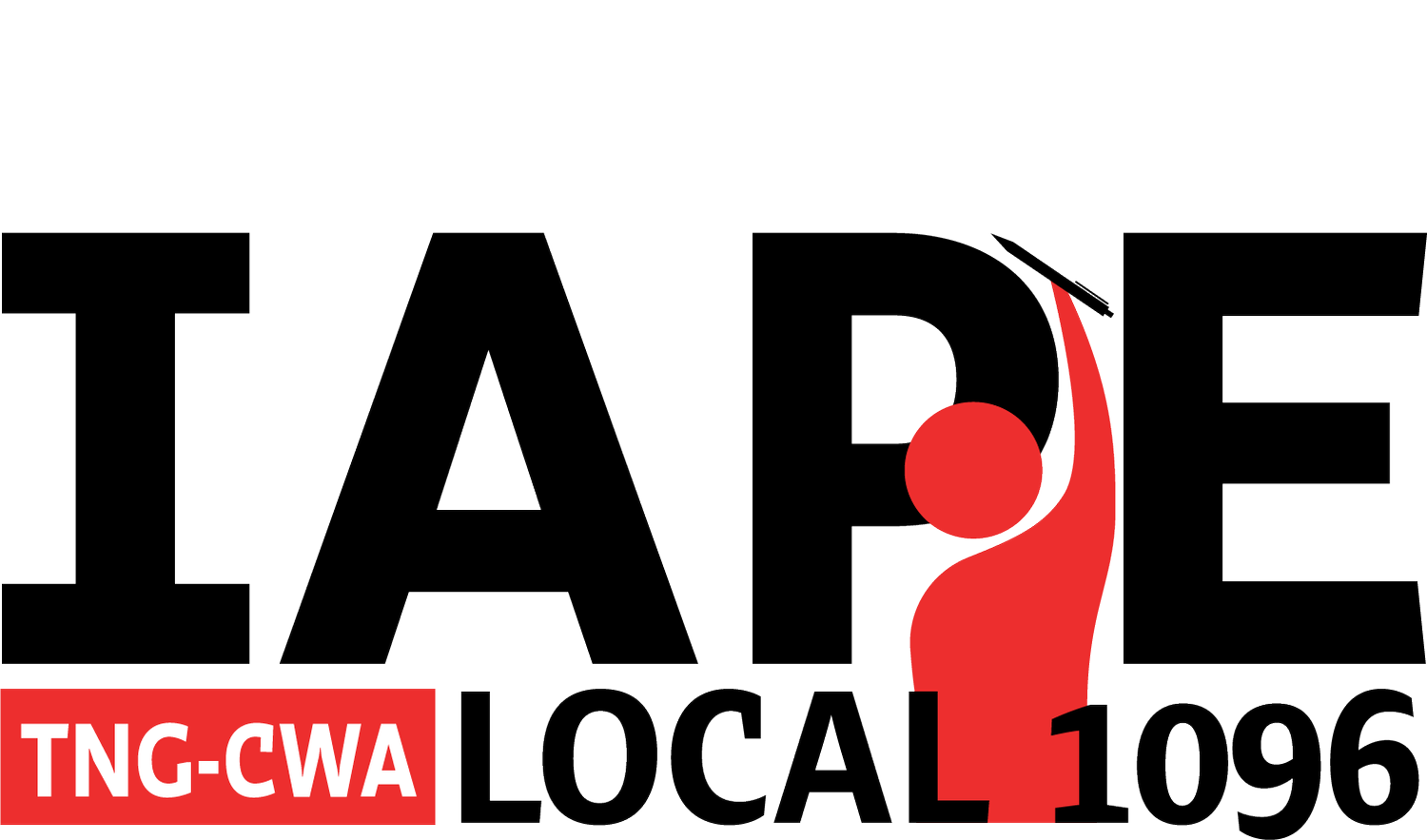First Grievance Reinstatement — IAPE At 80
As we celebrate the 80th anniversary of IAPE, we'll take an occasional look back at key moments in our Union's history. Follow along with our #IAPEat80 series here.
Travel with us now, back to Cleveland, Ohio, in 1985 (when The Wall Street Journal still had a bureau in Cleveland), and the first-ever IAPE-assisted reinstatement for an employee fired by Dow Jones.
For refusing to water her boss's plants (no, we're serious).
************************************************************************************************************************
From The IAPE Newsletter, December 1985
Job Security Boost
Debbie Is Reinstated; IAPE Chalks Up A 'First'
Deborah McHale, at the WSJ Cleveland bureau in 1985
CLEVELAND — IAPE, for the first time in its 48-year history, was able to win reinstatement, full back pay and an apology for a fired employee. And the exceptional circumstances of the case generated considerable publicity.
The employee, Deborah McHale, works in The Wall Street Journal's advertising department here. She was reinstated last January just over a month after being fired. Earlier, she had rejected a financial offer by the company to settle her case without reinstatement.
(The union has fought numerous termination cases during the past 48 years. But prior to this case, such efforts resulted in grievants either accepting settlements or the union being unable to win reinstatement through the grievance procedure.)
Commented IAPE President Eric Frankland: "The credit for this happy outcome goes almost entirely to IAPE's Cleveland director Greg Stricharchuk. He was on top of this case from the outset and, as it developed, he promptly called in Grievance Committee Chairman Ron Chen in New York. Together, they coordinated union strategy flawlessly. It helped a great deal, too, that the grievant trusted the union to do its very best."
Ms. McHale had filed a grievance concerning her job status just before being fired and, when the ax fell, IAPE filed an unfair labor practice charge against the company with the National Labor Relations Board; that charge was withdrawn following Ms. McHale's reinstatement. Commented an NLRB attorney: "She is lucky she had the union behind her. She could have been left standing in the cold." What produced the headlines including stories in the Cleveland Plain Dealer, Crain's Business, The New York Post, Editor & Publisher magazine and the Bureau of National Affairs' White Collar Report - was the fact that Ms. McHale was fired ostensibly for refusing to water the plants in her boss's office.
At the reinstatement, the manager apologized, conceding that he had "acted impetuously" and had "overreacted". He shook hands with Ms. McHale, watched by his immediate supervisor who flew in from Chicago. The company promised there wouldn't be any mention of the disciplinary incident in Ms. McHale's personnel file.
Ms. McHale's boss had told Stricharchuk one day in December that he intended to fire her at 5 p.m. Stricharchuk promptly contacted Chen in New York.
Chen advised him to explain to Ms. McHale's boss that she already had a grievance on file and that he should consider delaying his termination plan pending a grievance session where the matter could be discussed. Chen also told Stricharchuk to instruct Ms. McHale that she was required to water her boss's plants if asked to do so but that she could do so "under protest."
In fact, Ms. McHale did water the plants in her boss's office; but that didn't prevent her being fired.
In "negotiations" by the company following the firing, Ms. McHale was told she could stay on the payroll through Dec. 31, 1984, if she would submit a resignation "to save face" and withdraw her grievances. She refused. Instead, she called on IAPE to fight to get her job back.
Her initial grievance was that she was working as an advertising assistant but receiving the lower pay of a secretary. That grievance, still unresolved, is winding its way through the grievance procedure. The company, of course, denies she has a case.

